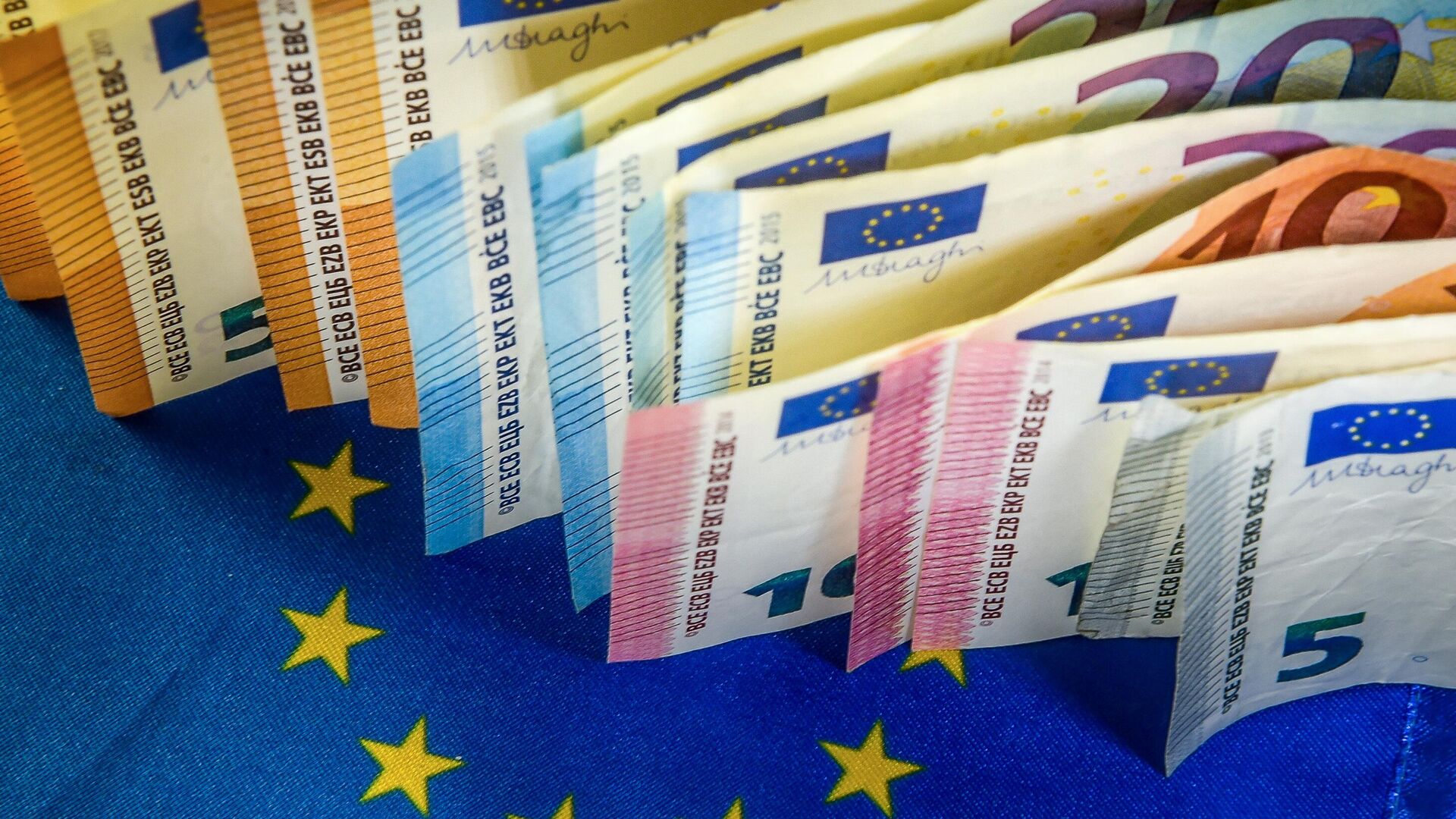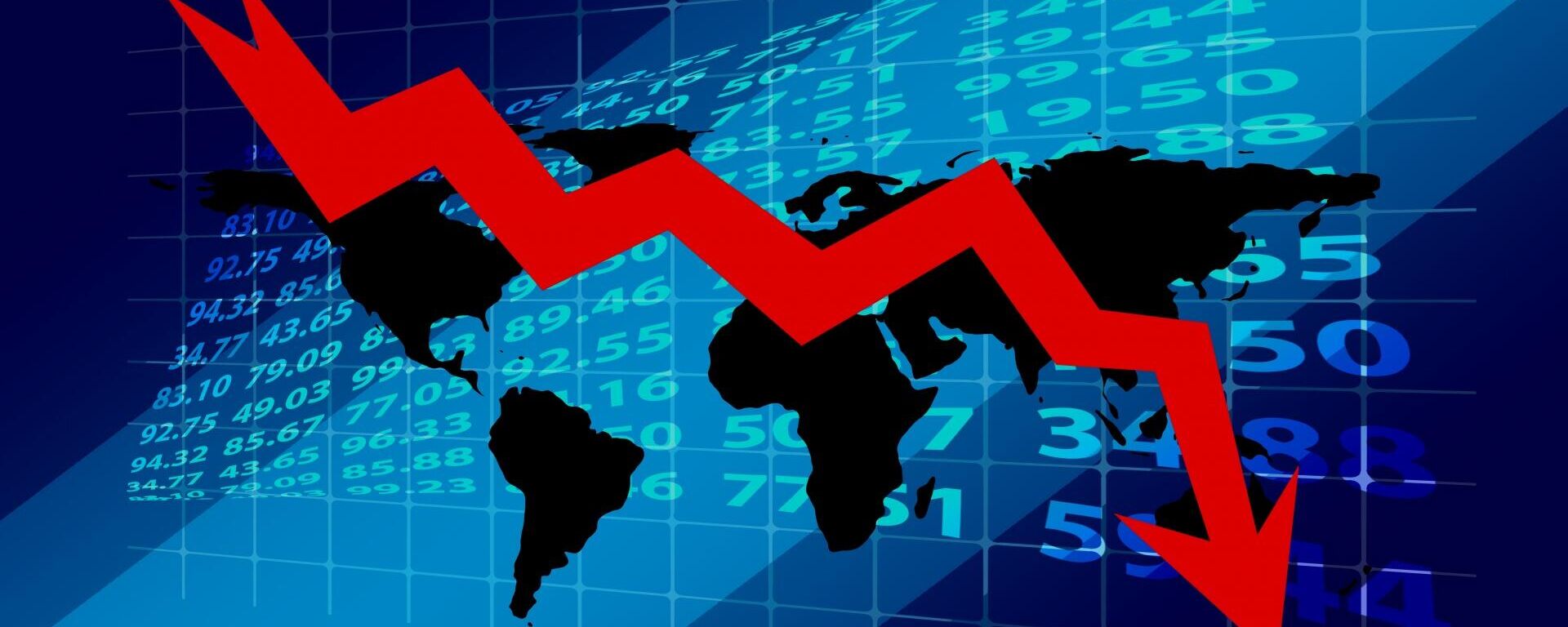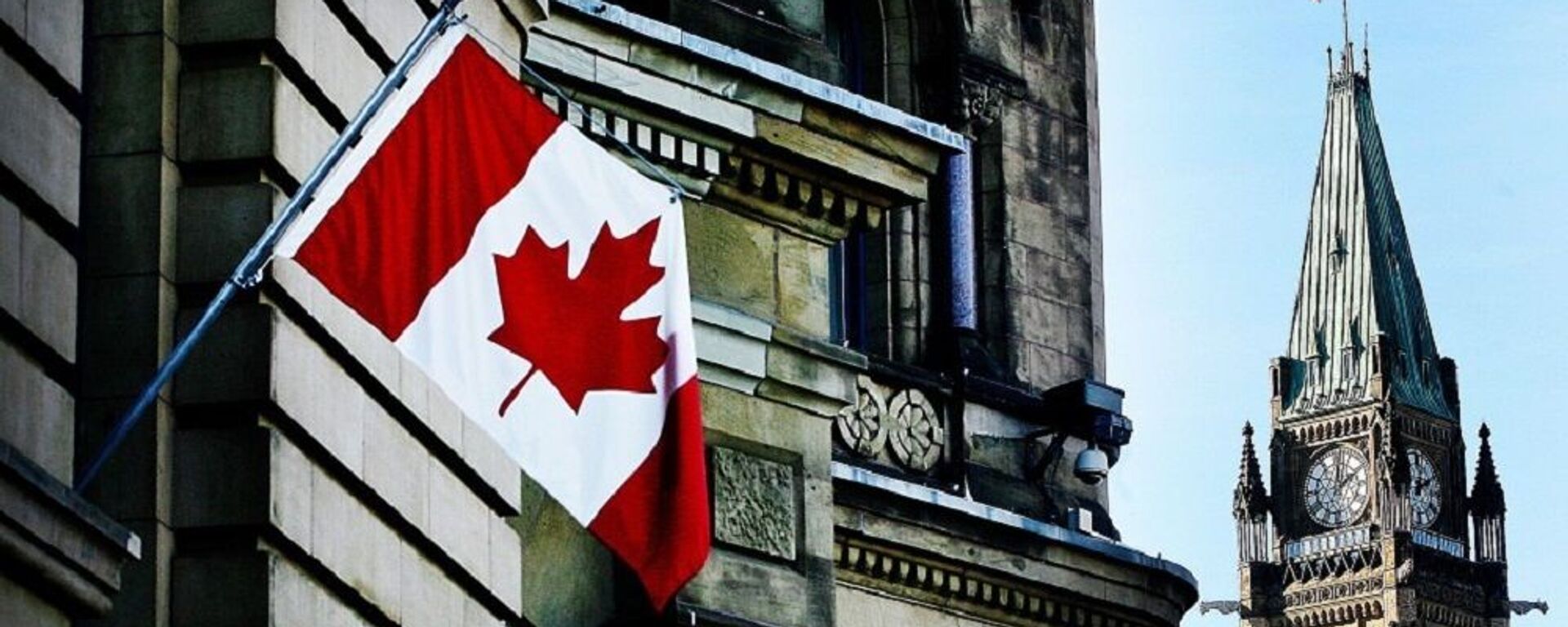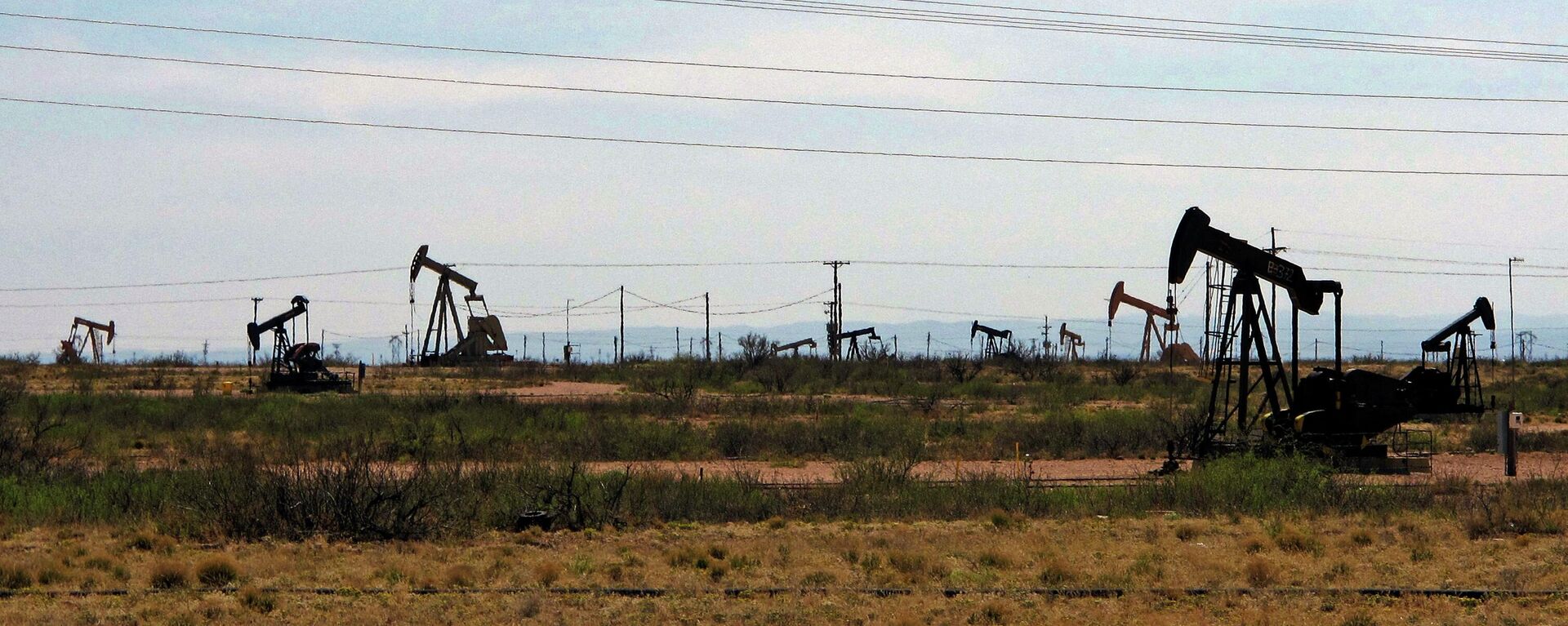https://sputnikglobe.com/20220714/euro-plunges-below-dollar-first-time-in-two-decades-as-skyrocketing-gas-prices-fuel-recession-fears-1097301954.html
Euro Plunges Below Dollar First Time in Two Decades as Skyrocketing Gas Prices Fuel Recession Fears
Euro Plunges Below Dollar First Time in Two Decades as Skyrocketing Gas Prices Fuel Recession Fears
Sputnik International
The euro plunged to its lowest level in two decades on July 5, shedding close to 1.5% to hit $1.0265 against the greenback, as fears of a recession in the... 14.07.2022, Sputnik International
2022-07-14T09:28+0000
2022-07-14T09:28+0000
2023-03-05T11:20+0000
the european central bank (ecb)
economic recession
finances
energy crisis in europe
dollar
euro
https://cdn1.img.sputnikglobe.com/img/07e6/07/0e/1097297455_0:204:2917:1845_1920x0_80_0_0_9d5e2373bc6fa9cd9a167b3c15528b9a.jpg
After teetering on the brink of parity with the dollar for several days, Europe's single currency, the euro, has tumbled below the greenback for the first time in two decades.It slumped to $0.9998 against the dollar on July 13, while overall it is down almost 12% so far this year.For most of its history since its launch in 1999, the single currency has been worth more than the dollar. The last instance when the euro traded below the dollar was in December 2002.On the other hand, the dollar has been quite resilient in recent months, buoyed by the US Federal Reserve hiking interest rates. America’s Central Bank raised rates by 75 bps in June. Furthermore, global recession fears have increasingly driven investors to the safe-haven dollar.According to analysts, after this plunge on Wednesday, the euro may slide down further, to reach $0.96 or even $0.90 against the backdrop of skyrocketing inflation buffeted by runaway gas prices.‘Gas Prices Key Factor’Spiraling energy costs have already been exerting a serious toll against the backdrop of restriction of Gazprom’s gas deliveries to Europe by the Brussels’ attempt to “phase out” Russian energy as part of sanctions over its special military operation in Ukraine. Furthermore, the situation was exacerbated when Russia's energy giant Gazprom significantly cut gas supplies via the Nord Stream 1 pipeline due to technical issues at the Portovaya compressor station mid-June, where at least two gas compressor units were left inoperable due to delays in contractually-obligated maintenance work by Siemens.In the long term, gas prices are believed to be a key factor that might send the euro tanking even further.While a weakening currency has a domino effect of rendering imports more expensive for euro zone countries, especially for goods priced in dollars, such as crude oil, it could also contribute to even higher inflation. Currently, euro zone inflation is running at 8.6% for June.“Gas rationing, stagflation, an expected recession, they are all good reasons to be bearish on the euro,” Stuart Cole, the head macro economist at Equiti Capital in London, was cited by UK media outlets as saying.ECB ActionThe current developments raise questions regarding the future of monetary policy wielded by the European Central Bank (ECB) in the euro zone amid fears of a looming recession. Some global banks have predicted a recession for the area as soon as in the third quarter.Stuart Cole predicted that these circumstances would make it harder for the ECB to hike interest rates, with the interest-rate differential with the US growing further.The euro suffered more than other developed currencies from recent gas price shocks, analysis by BNP Paribas is cited as showing.JPMorgan has cut its euro-dollar target to $0.95, underscoring that it is "a reflection the market will become increasingly willing to price in greater probability for an escalation" of “parabolic" gas price spikes.The euro may fall to as low as $0.95 by end-August, Nomura global financial services group’s strategist Jordan Rochester is cited by media outlets as suggesting. He added that if gas storage tanks are not fully replenished by winter, the single currency might slip to $0.90.The ECB has already announced that it is raising interest rates at its July 21 for the first time since 2011. It signaled it might seek to prop up the euro by more aggressive tightening of monetary policy, including a 50-basis-point rate hike in September, and potentially in October and December.The global economy, which first began to suffer troubles during the coronavirus pandemic recovery, with countries reporting soaring inflation in November 2021, saw its woes exacerbated in 2022. Relentlessly growing oil, gas and fuel price have been exacerbated by the self-inflicted economic aftershock of anti-Russia sanctions.As central banks rushed to raise interest rates, these moves, in turn, sparked concerns among investors and economists that they might prompt a decline in growth and even recession.
https://sputnikglobe.com/20220712/us-investor-rogers-predicts-global-economy-long-recession-in-coming-years-1097212683.html
https://sputnikglobe.com/20220709/canada-reportedly-dodges-own-anti-russia-sanctions-to-ship-nord-stream-1-turbine-to-germany-1097130861.html
https://sputnikglobe.com/20220706/crude-dips-to-95-as-surging-dollar-recession-fear-test-mettle-of-oil-rally-1097033131.html
Sputnik International
feedback@sputniknews.com
+74956456601
MIA „Rossiya Segodnya“
2022
News
en_EN
Sputnik International
feedback@sputniknews.com
+74956456601
MIA „Rossiya Segodnya“
Sputnik International
feedback@sputniknews.com
+74956456601
MIA „Rossiya Segodnya“
the european central bank (ecb), economic recession, finances, dollar, euro
the european central bank (ecb), economic recession, finances, dollar, euro
Euro Plunges Below Dollar First Time in Two Decades as Skyrocketing Gas Prices Fuel Recession Fears
09:28 GMT 14.07.2022 (Updated: 11:20 GMT 05.03.2023) The euro plunged to its lowest level in two decades on July 5, shedding close to 1.5% to hit $1.0265 against the greenback, as fears of a recession in the 19-country euro zone ramped up. Euro zone inflation recorded a new record high in June at 8.6% (year-on-year) buffeted by skyrocketing gas prices in recent months.
After teetering on the brink of parity with
the dollar for several days, Europe's single currency, the euro, has tumbled below the greenback for the first time in two decades.
It slumped to $0.9998 against the dollar on July 13, while overall it is down almost 12% so far this year.
For most of its history since its launch in 1999, the single currency has been worth more than the dollar. The last instance when the euro traded below the dollar was in December 2002.
On the other hand, the dollar has been quite resilient in recent months, buoyed by the US Federal Reserve hiking interest rates. America’s Central Bank raised rates by 75 bps in June. Furthermore, global
recession fears have increasingly driven investors to the safe-haven dollar.
According to analysts, after this plunge on Wednesday, the euro may slide down further, to reach $0.96 or even $0.90 against the backdrop of skyrocketing inflation buffeted by runaway gas prices.
Spiraling energy costs have already been exerting a serious toll against the backdrop of restriction of Gazprom’s gas deliveries to Europe by the Brussels’ attempt to “phase out” Russian energy as part of
sanctions over its special military operation in Ukraine. Furthermore, the situation was exacerbated when Russia's energy giant Gazprom significantly cut gas supplies via the Nord Stream 1 pipeline due to technical issues at the Portovaya compressor station mid-June, where at least two gas compressor units were left inoperable due to delays in contractually-obligated maintenance work by Siemens.
"If the gas pipeline that's closed for 10 days doesn't reopen and we get more gas rationing, in that situation we may not have seen the weakest levels of the euro," Christian Keller, head of economics research at Barclays, was cited by Reuters as saying.
In the long term, gas prices are believed to be a key factor that might send the euro tanking even further.
While a weakening currency has a domino effect of rendering imports more expensive for euro zone countries, especially for goods priced in dollars, such as crude oil, it could also contribute to even higher inflation. Currently, euro zone inflation is running at 8.6% for June.
“Gas rationing, stagflation, an expected recession, they are all good reasons to be bearish on the euro,” Stuart Cole, the head macro economist at Equiti Capital in London, was cited by UK media outlets as saying.
The current developments raise questions regarding the future of monetary policy wielded by the European Central Bank (ECB) in the euro zone amid fears of a looming recession. Some global banks have predicted a recession for the area as soon as in the third quarter.
Stuart Cole predicted that these circumstances would make it harder for the ECB to hike interest rates, with the interest-rate differential with the US growing further.
The euro suffered more than other developed currencies from recent gas price shocks, analysis by BNP Paribas is cited as showing.
JPMorgan has cut its euro-dollar target to $0.95, underscoring that it is "a reflection the market will become increasingly willing to price in greater probability for an escalation" of “parabolic" gas price spikes.
The euro may fall to as low as $0.95 by end-August, Nomura global financial services group’s strategist Jordan Rochester is cited by media outlets as suggesting. He added that if gas storage tanks are not fully replenished by winter, the single currency might slip to $0.90.
The ECB has already announced that it is raising interest rates at its July 21 for the first time since 2011. It signaled it might seek to prop up the euro by more aggressive tightening of monetary policy, including a 50-basis-point rate hike in September, and potentially in October and December.
The global economy, which first began to suffer troubles during the coronavirus pandemic recovery, with countries reporting soaring inflation in November 2021, saw its woes exacerbated in 2022. Relentlessly growing oil, gas and fuel price have been exacerbated by the self-inflicted economic
aftershock of anti-Russia sanctions.
As central banks rushed to raise interest rates, these moves, in turn, sparked concerns among investors and economists that they might prompt a decline in growth and
even recession.





